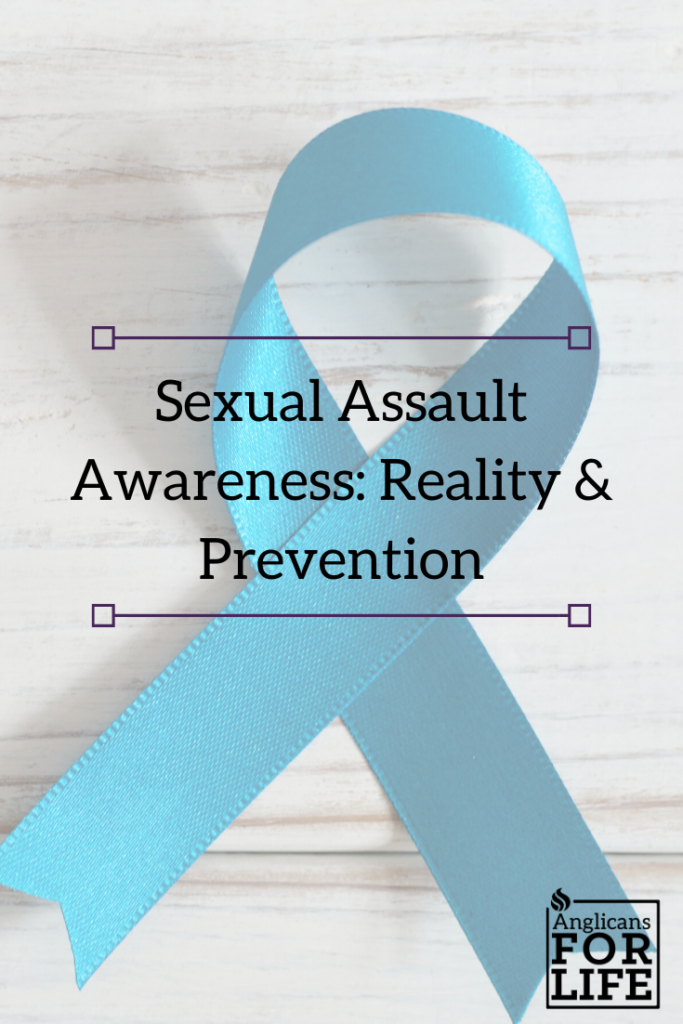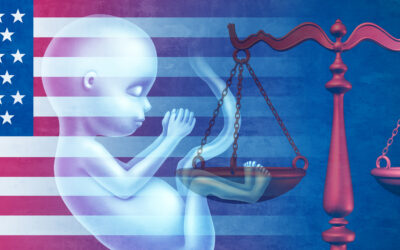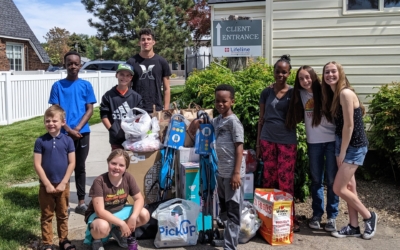
With Sexual Assault so much in the news (and next month being Sexual Assault Awareness Month!), it can only benefit students to be aware of the growing crisis, especially on college campuses, and how to prevent it happening to them. It can have lasting psychological and physical effects on victims, their family, friends and communities. That’s why we’re talking about it.
First, we have to point out a key difference. In February, you may have heard us talk about Teen Dating Violence Awareness Month and the impact that dating violence can have on teens and young adults. Just as a refresher, dating violence and sexual assault or abuse are NOT the same thing. Here’s the difference. Anytime you are getting yelled at, threatened, bullied, shoved, pushed, abused, or slapped, that is considered dating violence. Anytime a person’s protest against engaging in sexual activity is ignored, sexual assault has occurred. The aggressor could be anyone: an acquaintance, co-worker, or even someone you are dating.
First off, many people think sexual assault will never happen to them – but if I’m honest, I think that’s the most dangerous assumption that we can make, whether we are male or female. This is no longer a one-gender issue – it’s a co-ed issue. Sexual assault is a serious crime that happens at a shocking rate. Second, most people imagine the typical person committing sexual assault as a psychotic stranger lurking in an alley. In reality, assaults are often committed by a seemingly “nice person” whom the victim may know quite well. No matter who the perpetrator is, sexual assault is an act of violence and a violation of personal rights, and this factor makes it even more important that every teenager is educated about the dangers of assault.
Here’s the sad part: sexual assault is partly the result of the way some people think that they should behave. Young people learn from relationships around them, what they see modeled at home and in the culture, and what media is portraying as “normal.” Some think they should be aggressive and in control whenever they’re in a relationship. Some individuals see sexual intimacy as a competition, kind of like a game. As when competing in sports, some individuals feel that they must “win” at any cost. Even the slang of sexual conquest is similar to that of sports. Think about it… have you ever heard someone speak of “scoring” with sex? It’s pretty common language in the cultural narrative and if you’ve never heard it, just throw on some popular Netflix teen drama and you’ll find it there. Some even see the object of a date is to see how far they can get in pressuring someone to have sex. My point is, this abusive attitude has nothing to do with sex: it’s really about power and control.
Despite my points above, the reality is that most people do not view a date or sexual intimacy as a contest. The sad reality is that many have not been taught to be assertive in resisting things they don’t want to do. As a result, they’re often blindsided and are unprepared to resist the aggression of a dating partner.
According to the National Sexual Assault Hotline, 1 out of every 6 American women has been the victim of an attempted or completed rape in her lifetime. 1 in 10 high school girls and 1 in 20 high school boys reported being forced into sex during the past year. Males ages 18-24 who are college students are approximately five times more likely than non-students of the same age to be a victim of rape or sexual assault. 54% of sexual assault victims are under 30. In 8/10 cases of rape, the victim KNEW the perpetrator. Those are just some of the statistics surrounding sexual assault and rape.
Another type of sexual assault is “force” – now, this doesn’t have to be physical force, even though that’s what most people think of when they hear the phrase. Forcing a victim to perform sexual acts can be emotional or psychological manipulation, verbal threats to hurt the victim, their family or other intimidation tactics.
As you can see, sex is misused so much in our society – sexual behavior as a hook (for people suffering from low self-worth), sexual behavior as a “duty,” sexual behavior as proof of loyalty, power, and maturity of sophistication, sexual behavior as a way to communicate. We have a serious problem, and without this awareness surrounding the issue, I’m afraid it’s only going to get worse. The root of it goes back to really our lack of understanding about who God is, who we were made to be, and what the value of every human being inherently is. That’s the bottom line – it all goes back to our identity crisis resulting from the fall.
Another thing we need to consider is how drugs play a part in teen sexual assault. If you drink at a party or with others, someone could slip drugs into your beverage without your knowing it, making it easier to perpetrate sexual violence against you. Being drugged without your knowledge makes it impossible for you to give legal consent to a sexual act. ANY drug, even alcohol, can increase your risk for sexual assault by a stranger or by someone you know (acquaintance rape). Drugs commonly used in sexual assault include the following:
- Rohypnol* (pronounced row-HIP-nal; also called roofies) is a sedative that can cause sleepiness, slurred speech, difficulty walking, black-outs and amnesia.
- GHB* is a depressant that may cause nausea, vomiting, dizziness, heart problems, seizures, black-outs, and, in some cases, coma.
- Ketamine* (pronounced keet-ah-meen; also called Special K) is an animal tranquilizer that can cause delirium, loss of memory, depression, and long-term memory and cognitive difficulties.
- MDMA* (also known as the club drug “ecstasy”) is a stimulant that causes feelings of peacefulness, acceptance, and affection towards another, as well as depression, confusion, anxiety, and paranoia.
- Alcohol* is a sedative and is the substance most commonly used to commit sexual assault.
Again, it’s so important to be aware of the tactics that those who perform sexual assault rely on so that you can protect yourself.
So, what do you do if you ARE sexually assaulted? First, if you are the victim of sexual assault – remember that it is not your fault. There’s nothing for you to feel ashamed or guilty about. You are not to blame.
- Get to a friend. Get somewhere where you know you’ll have emotional support, or call 911. We’ve talked about before how vital community and friendship are, and in traumatic situations they become even more important.
- Go to a hospital. See a doctor immediately for treatment of any injuries and for other tests which can provide medical evidence if you choose to report the crime. Don’t bathe, shower, or change your clothes before you go (for many, this is the hardest part).
- Report the assault. Remember this isn’t mandatory, but reporting the assault is an important part of ending sexual violence and you could lessen the chance of the same thing happening to others. Ultimately, you have to be comfortable with the decision, which is another reason why having a friend, mentor, or someone you trust with you is so important.
- Seek counseling. Whether or not you report the sexual assault, and participate in legal action, you should consult a trained sexual assault crisis counselor, hospital, rape-crisis center, or mental health center. Many confusing feelings are present after an assault and it can be helpful to walk through with someone else.
If you are sexually assaulted, you may be left with mental, physical, and emotional damage that left untreated, can be damaging for the rest of your life. These effects include but are not limited to: depression, self-harm, flashbacks, PTSD, eating disorders, STIs, pregnancy, substance abuse, sleep disorders, dissociation, and suicidal thoughts. That’s why step four is so important… seek help, and if you are a Christian, seek help from the local Church, where people can come alongside you, pray with and for you, and really be instruments of peace in your healing.
If you or someone you know has been sexually assaulted, here are some resources that you can utilize. You are not alone. You can also use these resources to find out more about how to get involved in promoting sexual assault awareness:
The Rape, Abuse, and Incest National Network. Recognized as the nation’s largest anti-sexual violence organizations. Provides information, support, resources, and help to get you through. Carries out programs to prevent sexual violence, help victims, and ensure that rapists are brought to justice.
RAINN National Sexual Assault Hotline
1-800-656-HOPE (4673) Available 24/7.
Provides victims of sexual assault with free, confidential services 24/7.
“Creating Cultures Free from Violence” Their mission is to mobilize men and use their political and cultural strength to create a culture free from violence, particularly men’s violence against women.
National Sexual Violence Resource Center
The NSVRC’s Mission is to provide leadership in preventing and responding to sexual violence through collaboration, sharing and creating resources, and promoting research.
Sources:
Rickert, V. I., Wiemann, C. M., Vaughan, R. D., & White, J. W. (2004). Rates and risk factors for sexual violence among an ethnically diverse sample of adolescents. Archives of Pediatrics and Adolescent Medicine, 158 (12), 1132-1139
Victims of Sexual Violence: Statistics. (2020). Retrieved from Rainn.org.
Written by Sammie Gallo, AFL Ministry Coordinator and author of Abundant Life: You Were Made for More.



